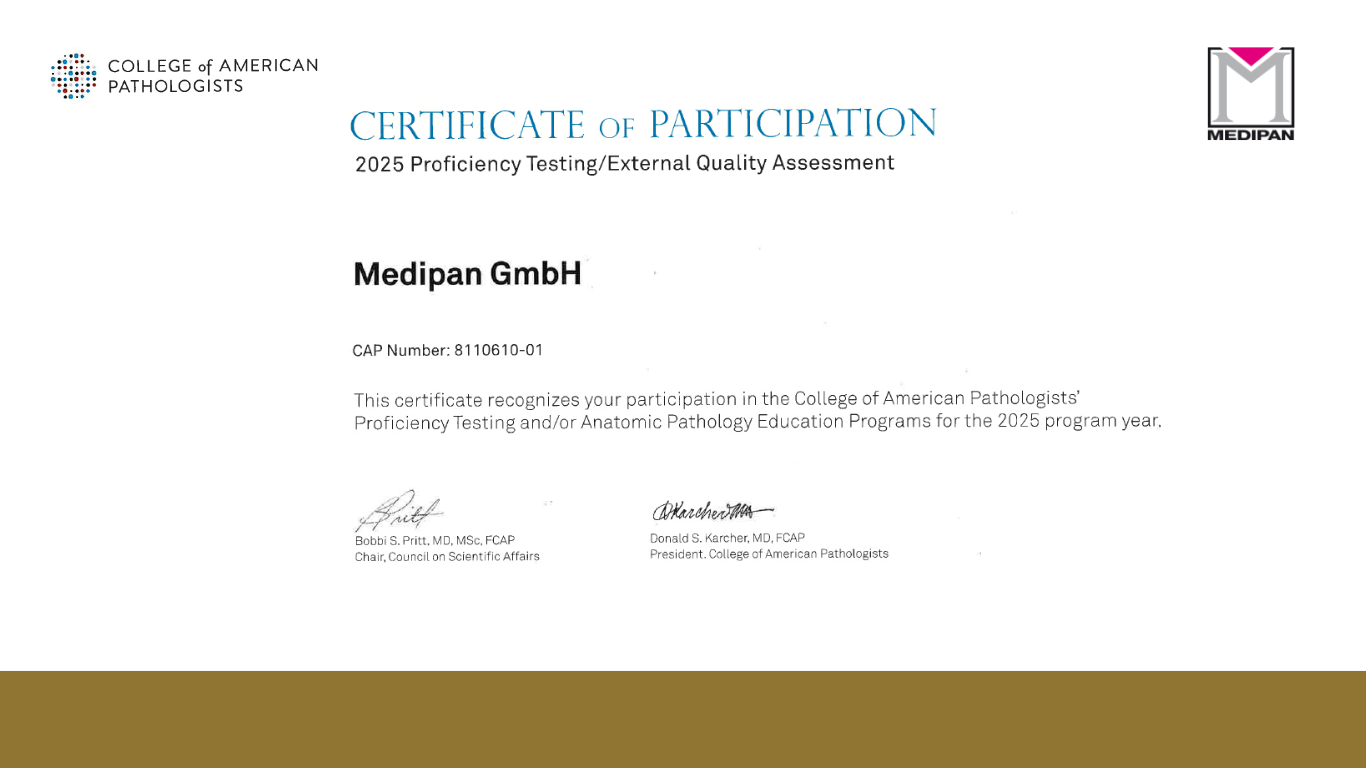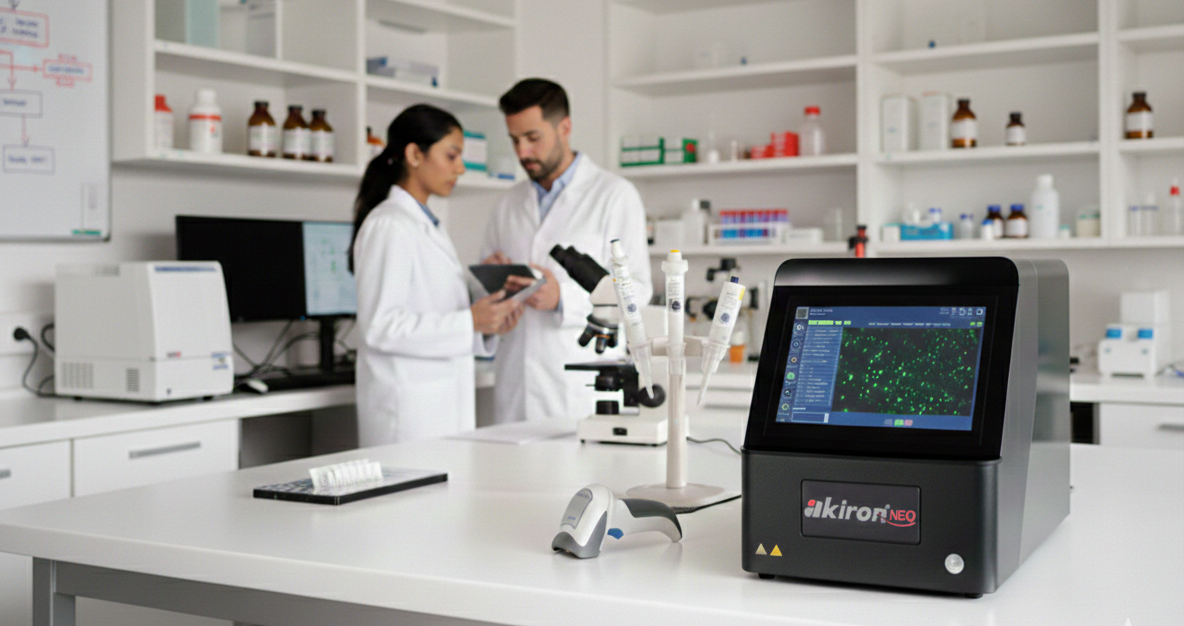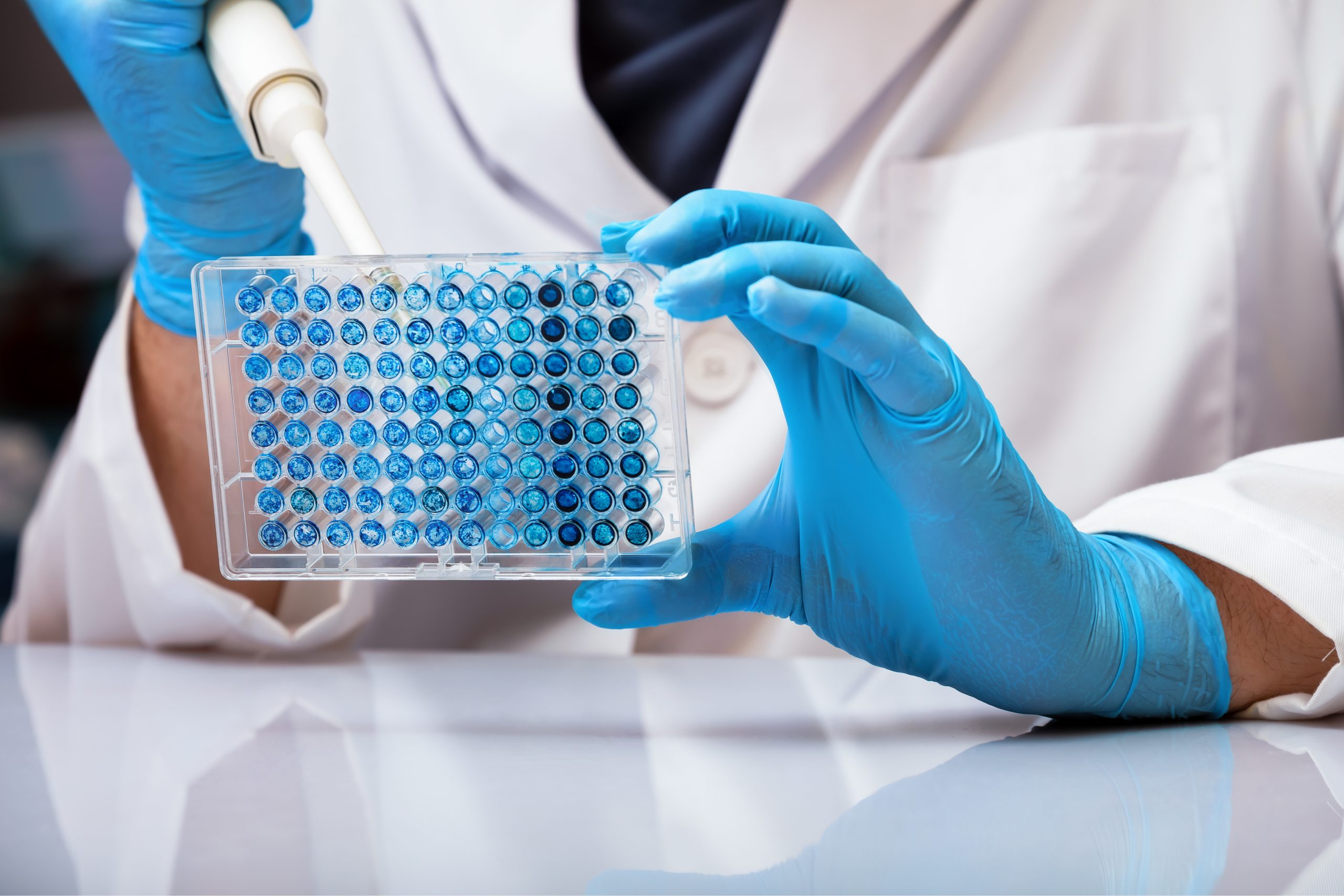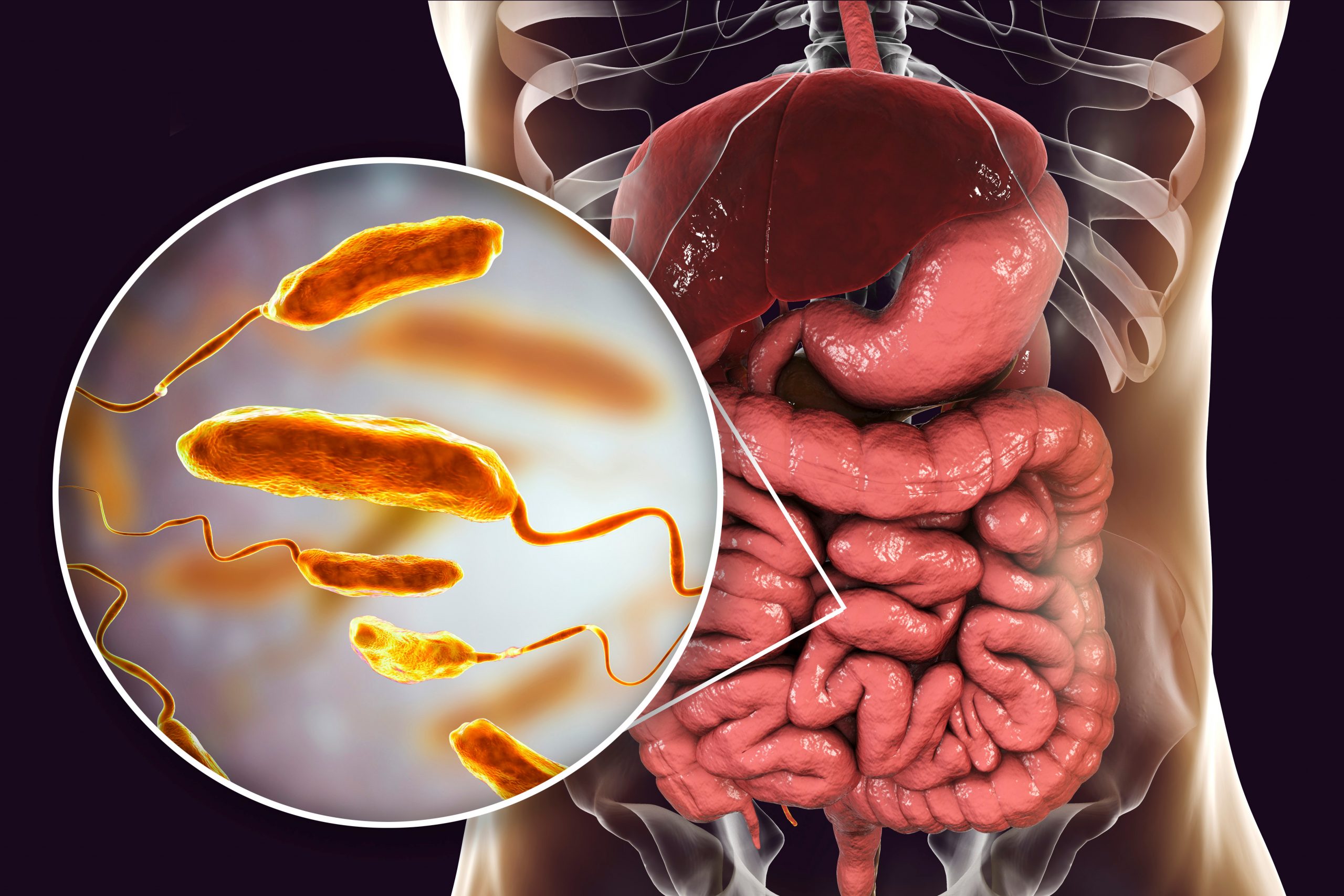
From Biomarkers to AI: Highlights of the 17th Dresden Symposium on Autoantibodies 2025
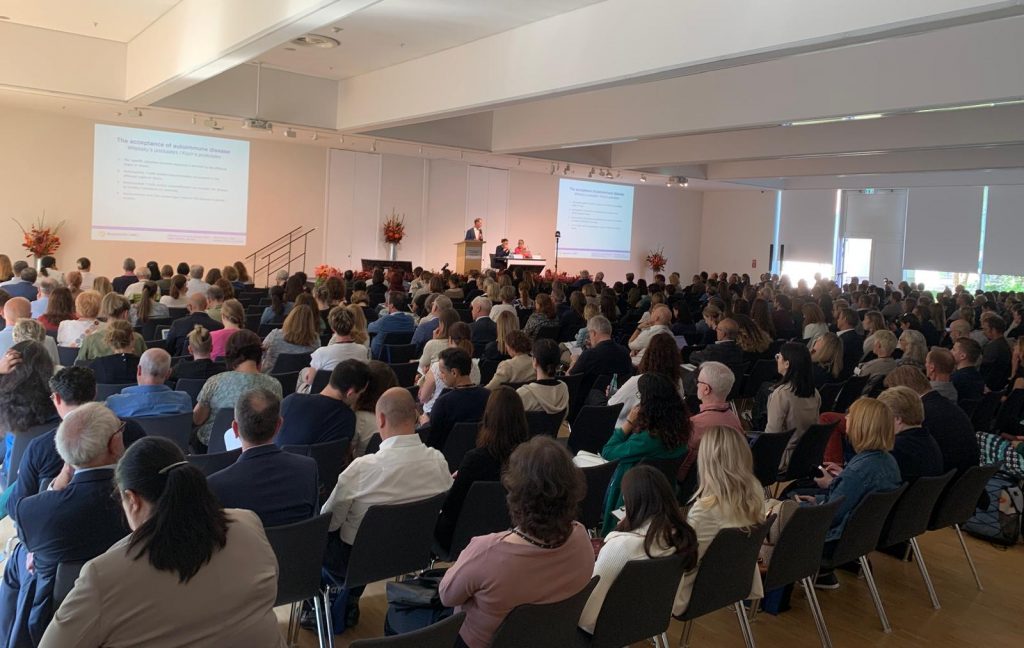
The Dresden Symposium on Autoantibodies reaffirmed its role as a landmark event, bringing together world-renowned experts to discuss the latest advances in autoimmunity. The symposium provided an invaluable opportunity to explore new perspectives on autoimmune diseases, emerging biomarkers, and technological innovations that are shaping the future of diagnostics and patient care. Medipan & GA Generic Assays were pleased to have contributed to this success by sponsoring a series of talks and showcasing our solutions in the field of autoantibodies at our booth.
Autoantibodies are gaining increasing importance in both diagnostics and research. These biomarkers support early disease detection and enhance understanding of immune regulation, making them key to personalized medicine.
The following highlights summarize key scientific insights especially relevant to Medipan & GA Generic Assays’ areas of focus.
Advancing Rheumatoid Arthritis (RA) Research
The symposium opened with a deep dive into rheumatoid arthritis (RA), highlighting advances in understanding and managing this complex condition
- Lieve van Hoovels (Belgium) challenged the traditional RA classification 1 by proposing adjustments to rheumatoid factor (RF) and anti-cyclic citrullinated protein/peptide antibodies (ACPA) scores to reduce the number of RA misclassifications.
- Ulrike Steffen (Germany) highlighted IgA-ACPA as a prognostic marker for RA risk, despite limited diagnostic value. IgA-ACPA was also shown to be a stratifying marker for preventive therapeutic interventions.
- Ricard Holmdahl (Sweden) introduced an innovative shift in perspective, suggesting that both B cells and autoantibodies may play protective roles against RA under certain conditions.
- Michael Mahler (USA) outlined the current state of RA prediction and prevention strategies, focusing on established and emerging biomarkers.
This session emphasized how a deeper understanding of RA biomarkers can transform early detection and patient outcomes.
Would you like to know more about our solution for RA? Take a look here!
Complexity of antiphospholipid syndrome (APS) and systemic lupus erythematosus (SLE)
The focus then shifted to antiphospholipid syndrome (APS) and systemic lupus erythematosus (SLE), conditions where accurate serological testing is essential.
- Mar Petit (Spain) presented recent advances in diagnosing APS, bridging insights between autoantibody science and clinical practice.
- Maria Orietta Borghi (Italy) presented the new 2023 ACR/EULAR APS classification criteria2, which represent a significant step towards standardizing diagnosis. These criteria aim to identify ‘definite’ APS for clinical and research purposes. In clinical settings, however, diagnosis must rely on a comprehensive evaluation of signs, symptoms, history, and laboratory results.
- Lieve van Hoovels (Belgium) revisited the likelihood ratio approach as a promising method to improve diagnostic reliability in APS.
Together, these insights painted a picture of evolving strategies that ensure diagnostic rigor while addressing real-world clinical needs.
Interested in APS? Read also our report on new diagnostic insights into APS during pregnancy here!
Novel Autoantigenic Targets and Emerging Technologies
The session “Novel Autoantigenic Targets and Emerging Technologies for Autoantibody Detection”, sponsored by Medipan & GA Generic Assays, was highly innovative.
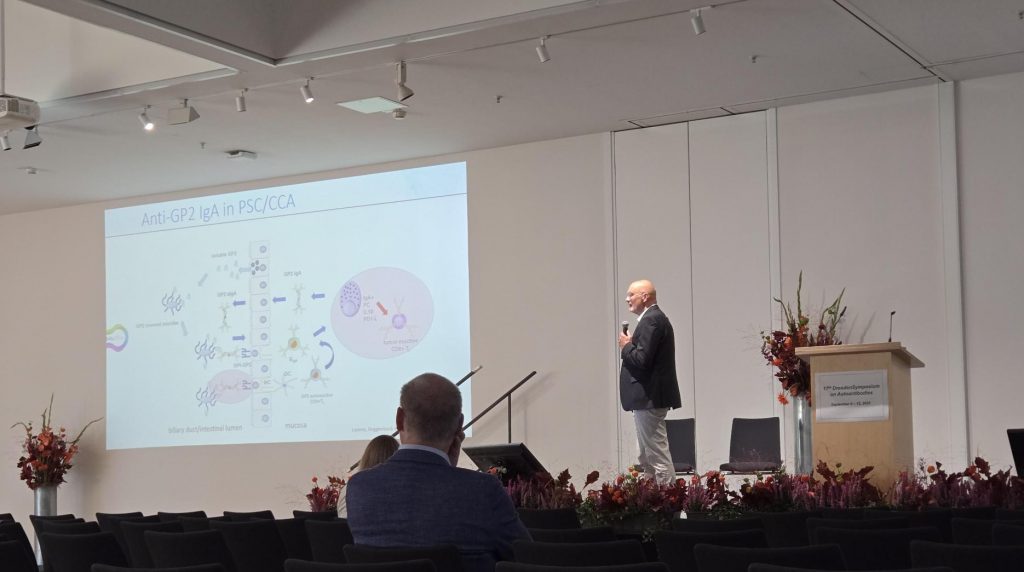
- Dirk Roggenbuck (Germany) introduced glycoprotein 2 (GP2) as a novel fecal marker linking gut microbiota dysbiosis to systemic inflammation3.
- Jonas Schmidt (Germany) compared AI-based ANA pattern interpretation of akiron® NEO ith expert readings, showing AI’s transformative diagnostic role. Comparable performance to expert readers was observed.
- Rico Hiemann (Germany) further expanded on AI applications of akiron® NEO, presenting algorithms for tissue-based immunofluorescence that promise standardization across laboratories.
- Dimitrios Bogdanos (Greece) explored the potential role of Helicobacter pylori as a trigger for ANA, raising intriguing questions on microbial involvement in systemic autoimmunity.
This session highlighted how next-generation technologies are reshaping autoantibody detection, moving the field toward greater precision and efficiency.
The Future of Autoimmune Testing
he discussions reflected broader diagnostic and clinical paradigms.
- María Luisa Mearin (Netherlands) discussed the growing global burden of autoimmunity, debating the risks of over- versus under-testing, citing the Italian decision to introduce screening for type 1 diabetes and celiac disease in the pediatric population4.
- Jan Damoiseaux (Netherlands) analyzed how undirected diagnostic expansion affects patients and society, calling for a more tailored approach to avoid rising costs, excessive time demands, and unnecessary anxiety for patients.
- Maria Infantino (Italy) discussed the sustainability and appropriateness of aPL testing, reminding clinicians to balance accuracy with resource management.
- Nicola Bizzaro (Italy) presented the new Italian guidelines for the immunological diagnosis of autoimmune liver diseases5, which represent a step forward from the established EASL recommendations. His contribution emphasized the pivotal role of autoantibodies such as ANA, SMA, LKM, SLA, and AMA in the diagnosis of autoimmune hepatitis (AIH) and primary biliary cholangitis (PBC). He emphasized aligning real-world lab practice with international guidance, using HEp-2 cells and updated cutoffs to improve sensitivity and specificity.
The talks closed with a clear message: sustainable, patient-centered testing strategies are crucial as autoimmunity rises globally.
Conclusion
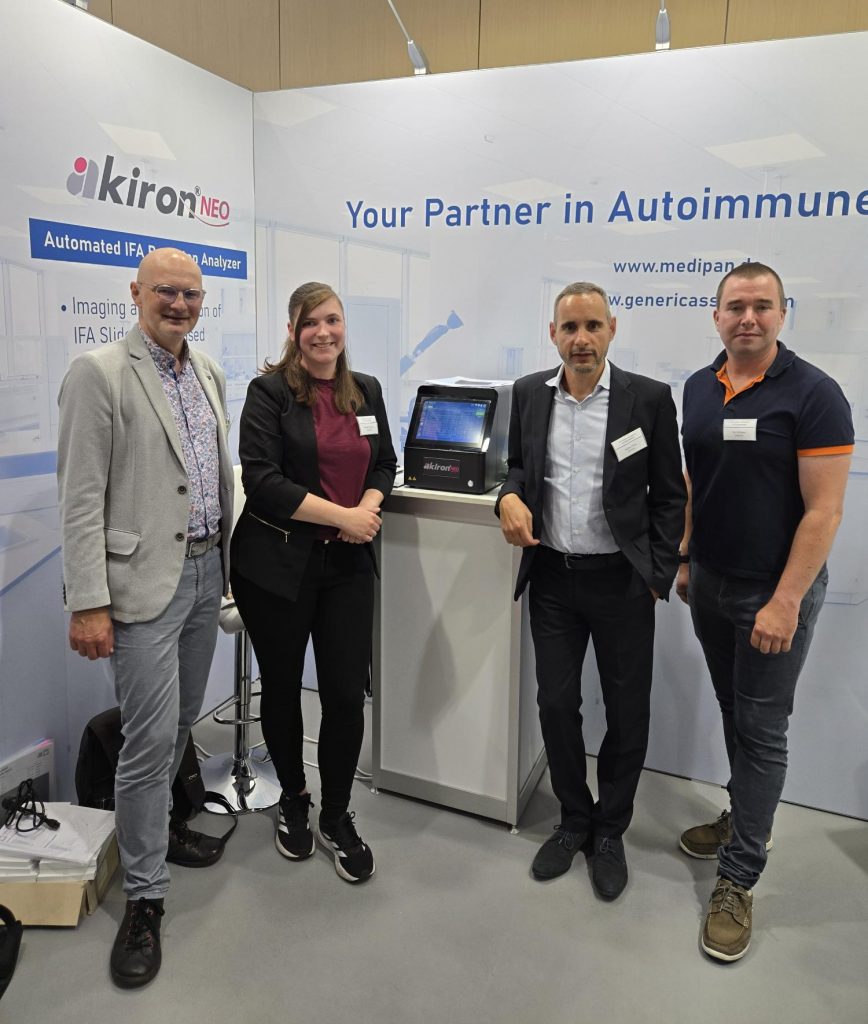
The Dresden Symposium on Autoantibodies 2025 showcased how collaborative science can drive meaningful advances. From AI innovations to refined disease criteria, the symposium highlighted the need to harmonize research, diagnostics, and clinical care.
This year’s event confirmed Dresden as the epicenter of autoantibody research, turning ideas into solutions for improved patient outcomes.
We are already looking forward to the next exciting Dresden Symposium on Autoantibodies in 2027!
References
- Aletaha et al., (2010) Rheumatoid arthritis classification criteria: an American College of Rheumatology/European League Against Rheumatism collaborative initiative ↩︎
- Barbhaiya, et al. (2024). The 2023 ACR/EULAR Antiphospholipid Syndrome Classification Criteria ↩︎
- Frost, et al. (2024) Fecal glycoprotein 2 is a marker of gut microbiota dysbiosis and systemic inflammation ↩︎
- Catassi, et al., (2024)Pediatric screening for type 1 diabetes and celiac disease: the future is today in Italy ↩︎
- Sorrentino, et al. (2024), Italian Society of Clinical Pathology and Laboratory Medicine guidelines on the use of autoantibody tests in the diagnosis of autoimmune liver diseases ↩︎

